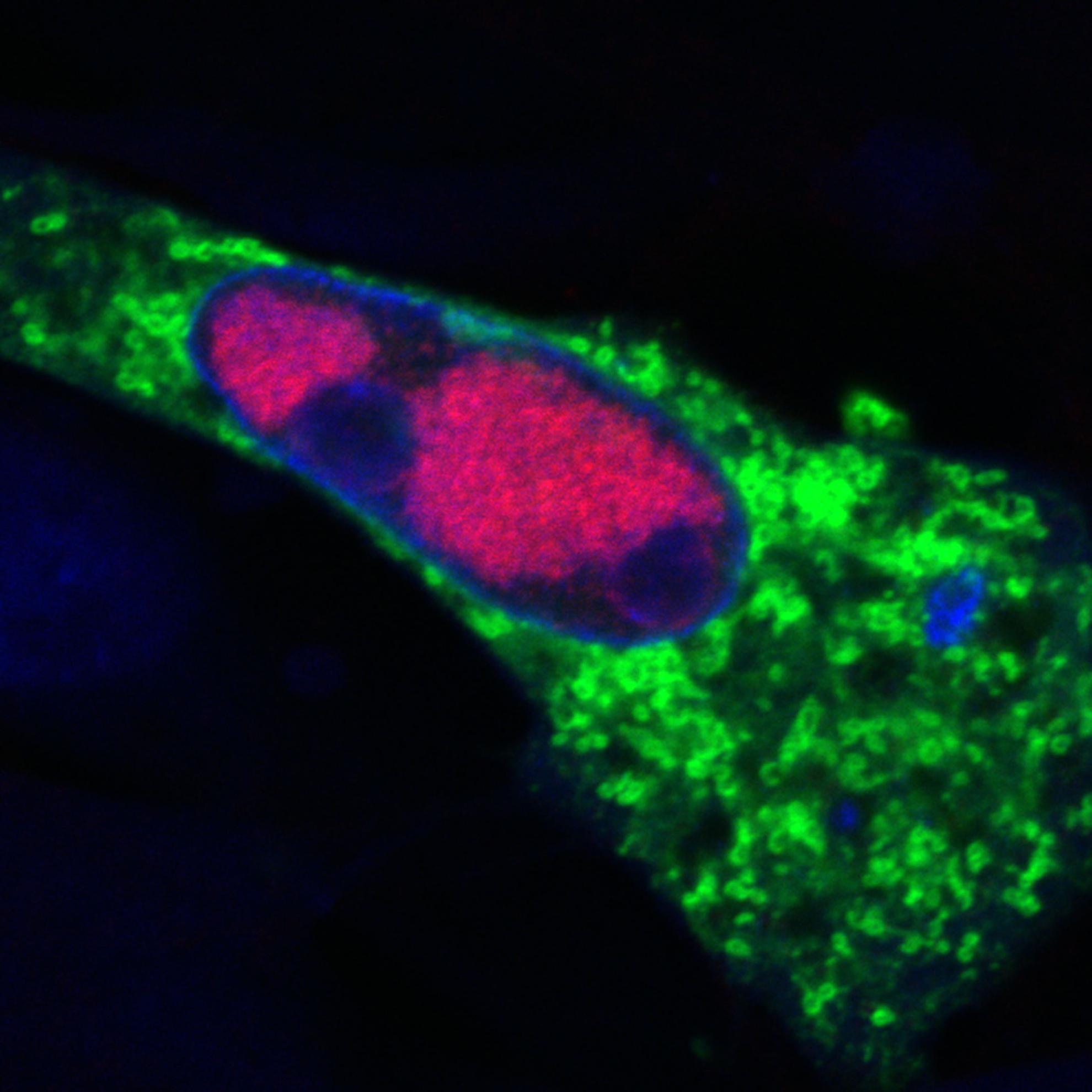Research by Pirbright scientists reveals that the chicken immune response to Marek’s disease virus (MDV) differs depending on the genetic makeup of infected birds, with some chickens being more resistant to disease than others.
MDV is a highly contagious virus that affects the poultry immune system and can cause paralysis and death. Understanding how the immune system fights the virus, and what genetic factors may protect chickens from disease may give scientists clues about how to prevent and treat Marek’s disease in chickens.
Currently the most effective way to protect birds from the disease is to vaccinate them. However, vaccines for Marek’s disease do not prevent the virus from being shed into the environment which poses a risk for disease control, so new improved vaccines need to be developed.
In research published in Frontiers in Immunology, scientists compared the immune responses of chickens that were genetically resistant to MDV to those that were genetically susceptible by investigating the interferon-gamma (IFNγ) response by T cells (important cells for fighting the virus). IFNγ is a chemical released by immune cells which helps to activate the immune system when pathogens infect the body. It is also known to be important in Marek’s disease infection since scientists know that giving chickens IFNγ with the MDV vaccine increases the effectiveness of the vaccine.
Researchers predicted that chickens which were genetically resistant to MDV would have a larger IFNγ response from the T cells that kill the virus. Results showed that there was a difference in immune response depending on genetic background of chickens, suggesting that there is an association between the production of IFNγ and resistance to disease. Further research is required in this area.
Dr Shahriar Behboudi, Head of the Avian Immunology group at Pirbright, said: “This study was the first of its kind to use a technique known as a cultured ELISPOT assay to quantify the IFNγ responses in chickens, and we believe that the methods described in this research can be used to study chicken T cell responses to other pathogens. A better understanding of chicken T cells would help vaccine development against many infectious diseases in poultry. This is especially important in the search for vaccines that produce long lasting immunity and would protect poultry from economically important diseases like Marek’s disease.”
This work was supported by UK Research and Innovation Biotechnology and Biological Sciences Research Council Grants.
Featured image: cell infected with Marek's disease virus. Viral proteins are highlighted in red and the host cell is highighted in green.
